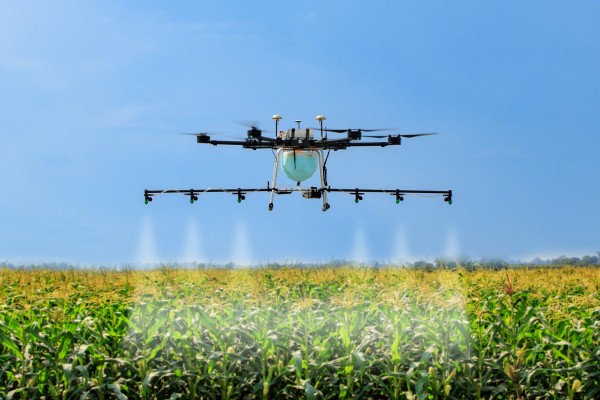Published on the 27/02/2019 | Written by Jonathan Cotton

It’s agriculture 4.0, but what will it take for the great Kiwi agtech project to bear fruit?…
Last week the largest international agri food tech event in the Southern hemisphere went down in Melbourne. Dubbed evokeAG 2019, and themed “Food, Farm, Future”, the event brought together leading scientists, researchers, farmers and innovators from all over the world to discuss just how the food of future generations will be produced.
The New Zealand contingent, agritech specialists, entrepreneurs, agribusiness leaders and support agencies, made up about 10 percent of the 1,100 delegates attending the event, including such agri-hopefuls as Wine Grenade, CertusBIO and Hot Lime Labs – all vying for the interest (and funding) of the international deep pockets also in attendance.
“The big takeaway from evokeAG is that New Zealand’s agritech ecosystem is perhaps two years ahead of Australia’s.”
The event is a sign of the times, especially on this side of the Tasman, as the New Zealand agritech market seems to be having a moment.
“Several investors said the New Zealand agritech market is coming of age,” says Agritech New Zealand executive director Peter Wren-Hilton, who attended the event.
“It is a great test market for addressing global farming challenges such as nutrient management and cleaning waterways, dealing with labour shortages and producing healthier food. Yet more needs to be done to help Kiwi agritech companies go global faster.”
As is so often the case, ‘going faster’ and ‘more funding’ go hand in hand. There is a wealth of potential solutions for global markets locked up in NZ crown research institutes (CRIs) and universities, Wren-Hilton says, and with better incentive structures and better connections with smart global capital, New Zealand can accelerate the conversion of this IP into value for the New Zealand economy.
He might have a point.
The Australian government, for example, appears to be leaning in to its support for local ag-research. It invests more than AU$600 million a year in agricultural research and development and was the headline sponsor in attendance.
Given the impressive showing, could New Zealand stand to learn a thing or two from Australia’s commitment here? Could we be letting the big agtech opportunity sitting in our laboratories and R&D workshops slip through our fingers?
Not even close, says Wren-Hilton.
Rather, the development of New Zealand’s ag-tech capabilities are growing rapidly, supported by both government and the private sector. Not only that, but New Zealand has some distinct advantages over it’s larger cross-Tasman sibling.
“The New Zealand government is currently developing a multi-agency agritech taskforce to coordinate the NZ Inc. agritech strategy,” he says. “In Australia, the issue of federal versus state interests mean that such coordination is much more difficult. The states (i.e. NSW, Victoria, Queensland) are competing to take the agritech crown. The taskforce is designed to accelerate the growth of the sector both domestically and internationally.”
All things considered, we’re doing okay: San Francisco-based online VC platform AgFunder gave the first results of its 2018 Global Investment Survey at the end of the conference and found that New Zealand agritech companies had actually attracted more venture funding than their Australian counterparts last year.
There are certainly credible accounts of New Zealand’s potential: CertusBio’s chief executive Matthew Jones won the investment-ready pitch competition against a slew of agritech firms from around the world.
The Christchurch-based innovator beat out pitches for concepts such as grasshopper farming, wine micro-oxygenation and autonomous crop sensing with its accurate industrial wastewater monitoring for food processing plants to reduce food waste, and took home the top cash prize of A$20,000.
But there’s still the need to get international eyeballs on agtech innovation downunder. To that end, Callaghan Innovation worked closely with the Australian Trade and Investment Commission to sponsor a delegation of global investors to attend the event and as more connections are made, hopefully the capital follows.
“The big takeaway from evokeAG is that New Zealand’s agritech ecosystem is perhaps two years ahead of Australia’s,” says Wren-Hilton.
“This is not Kiwi boasting. This is what key Australian speakers said on the main platform. What evokeAG has done has provided an opportunity for the two countries to collaborate more closely on common problems. I never view a conference as a two to three day event. I view it is the beginning of a journey. EvokeAG fits this bill,” he says.
“There is certainly a case for accelerating the commercialisation of some of our publicly-funded research….[but] compared to Australian publicly-funded research, the word from the venture funds attending was that New Zealand was ahead of the game.”



























